When: Monday, August 15, 2022
Where: Discovery Partners Institute, 200 South Wacker Dr., 4th Floor, Chicago, IL 60606
Description: Scaling up hardware for quantum information processing is a critical requirement for quantum processors to achieve practical utility. A key challenge is the sustained precision control of large quantum systems. Many current quantum computer architectures consist of a layered control stack between algorithms and physical implementation. Scaling up requires optimization of pulses and communication between the layers. Efficient, accurate, and sometimes large-scale classical simulations of quantum devices provide a necessary glue between the layers, allowing for practical generation of quantum optimal control pulses. This workshop will bring together researchers with expert knowledge of these different layers in order to stimulate collaborations and accelerate scaling-up of quantum devices. In addition to the talks, there will be a panel discussion between the speakers.
This workshop is intended for those who are in or have completed a graduate program. The workshop will be in-person.
Click here to download a PDF agenda
| Time | |
| 9:00 – 9:55 AM | Registration & refreshments |
| 9:55 – 10:00 AM |
A. Barış Özgüler, Fermilab Opening Remarks |
| Session I, Moderator: A. Barış Özgüler, Fermilab | |
| 10:00 – 10:30 AM |
Hannes Bernien, University of Chicago A dual-element atom array processor |
| 10:30 – 11:00 AM |
Michael Biercuk, Q-CTRL Realizing autonomy in the quantum computing stack via quantum control |
| 11:00 – 11:30 AM |
Fred Chong, University of Chicago The Role of Quantum Control in Full Stack Optimization |
| 11:30 AM – 12:00 PM |
Ed Barnes, Virginia Tech Finding time-optimal controls for dynamically corrected gates and simulation algorithms |
| 12:00 – 12:10 PM | Short break |
| 12:10 – 12:40 PM |
Panel I (Barnes, Bernien, Biercuk, Chong) Moderator: Jens Koch, Northwestern |
| 12:40 – 2:00 PM | Lunch |
| Session II, Moderator: Jonathan Baker, UChicago | |
| 2:00 – 2:30 PM |
Farah Fahim, Fermilab A Cryogenic arbitrary waveform generator for a compact Ion Trap based Quantum System |
| 2:30 – 3:00 PM |
Michael Goerz, U.S. Army Research Lab Scalable Quantum Control with Semi-Automatic Differentiation |
| 3:00 – 3:30 PM |
John Martinis, University of California Santa Barbara Scaling constraints for a quantum computer |
| 3:30 – 4:00 PM | Break (with refreshments) |
| 4:00 – 4:30 PM |
Zlatko Minev, IBM Quantum Hardware Design: Energy, Circuits, and Metal |
| 4:30 – 5:00 PM |
Mark Saffman, University of Wisconsin–Madison Scaling up atomic qubit arrays: opportunities and bottlenecks |
| 5:00 – 5:10 PM | Short break |
| 5:10 – 5:40 PM |
Panel II (Fahim, Goerz, Martinis, Minev, Saffman) Moderator: Matt Otten, HRL |
Notes: All times are in Central Time (CT). Presentation times include a 25-min talk, plus 5-min for Q&A.
Questions can be directed to CQE's Program Manager, David Shimomura, at dshimomura@uchicago.edu.
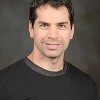
Edwin Barnes, Virginia Tech
Title: Finding time-optimal controls for dynamically corrected gates and simulation algorithms
Scaling up to larger quantum devices requires noise-resistant control schemes that exhibit near-optimal performance given experimental bounds on control pulses. A promising approach is to equip gradient-based numerical pulse-shaping methods with global information about the control landscape. I will describe a method to do this that exploits a one-to-mapping between robust quantum evolution and closed geometric space curves. Globally optimal control pulses can be found by constructing closed curves that satisfy certain conditions and extracting their curvatures. I will also present a control-based variational quantum simulation algorithm that prepares ground state wavefunctions on timescales approaching the quantum speed limit.
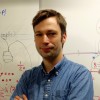
Hannes Bernien, University of Chicago
Title: A dual-element atom array processor
Reconfigurable arrays of neutral atoms are an exciting new platform to study quantum many-body phenomena and quantum information protocols. Their excellent coherence combined with programmable Rydberg interactions have led to intriguing observations such as quantum phase transitions, the discovery of quantum many-body scars, and the recent realization of a topological spin liquid phase.
Here, we introduce a dual-element atom array that includes both individual cesium and rubidium atoms [1]. We demonstrate that we can control both species with negligible crosstalk which enables us to operate the atom array in a continuous mode. Furthermore, we will discuss how such a dual-element architecture could enable new avenues in quantum information processing including the possibility to perform quantum non-demolition readout, the preparation of large, entangled states and the study of open systems with engineered dissipation.
[1] K. Singh et al. Physical Review X 12, 011040 (2022)

Michael Biercuk, Q-CTRL
Title: Realizing autonomy in the quantum computing stack via quantum control
Quantum control is routinely employed to improve quantum hardware performance in software at various levels of the QC stack. In this talk, we describe how autonomy can be realized in the implementation of quantum control from the quantum firmware layer through to quantum error correction. We focus on a range of intelligent protocols designed to perform key tasks from hardware calibration through to compilation without either manual intervention or reliance on “brute force” approaches. We begin with an introduction to the use of closed-loop feedback control in the quantum firmware layer. Here we demonstrate novel approaches to adaptive multiparameter Hamiltonian estimation used for efficient device calibration with order-of-magnitude reduction in measurement overheads relative to traditional approaches. We then demonstrate how fully autonomous deep reinforcement learning agents can design single and multiqubit gates which outperform the best human-designed operations, accounting for unknown system imperfections. Continuing up the stack we introduce adaptive compiler level tools which automatically select from various strategies for circuit-level error suppression and identify multiqubit gates for auto-optimization based on hardware parameters. We assemble these techniques to perform QED-C algorithmic benchmarks achieving up to >1000X improvements relative to the best, expert-configured alternative tools. We also show an enhancement of quantum volume beyond published specifications for commercial quantum computers. These results are achieved via execution of a single autonomous workflow with no manual intervention, demonstrating the power of autonomy in extracting maximum performance from quantum hardware.
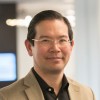
Fred Chong, University of Chicago
Title: The Role of Quantum Control in Full Stack Optimization
Quantum computing is at an inflection point, where 127-qubit machines are deployed, and 1000-qubit machines are perhaps only a few years away. These machines have the potential to fundamentally change our concept of what is computable and demonstrate practical applications in areas such as quantum chemistry, optimization, and quantum simulation.
Yet a significant resource gap remains between practical quantum algorithms and real machines. A promising approach to closing this gap is to design full stack optimizations that exploit key physical properties of emerging quantum technologies. Quantum control can play an important role in these optimizations. I will illustrate this role with some of our recent work that focuses on techniques that break traditional abstractions and inform hardware design, including reducing noise with randomized gate decompositions to native gates, exploiting native 3-qubit gates, and computing with qutrits and ququarts.
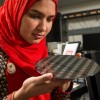
Farah Fahim, Fermilab
Title: A Cryogenic arbitrary waveform generator for a compact Ion Trap based Quantum System
Benefits and deficits of using trapped-ion qubits is elaborated by Bruzewicz, et al. [1]. A recognized bottleneck to progress towards larger numbers of trapped ions is the large external volume required to support the optical and electronic control systems, especially compared to other technologies where control elements can be co-fabricated into the qubit chip. For 4 K operation, development of integrated photonics and electronics systems that maintain qubit gate fidelity without inducing crosstalk and other effects is the path towards scalable ion-traps beyond 100 qubit systems. Cryogenic operation is critical for use of trapped ions in quantum computing, as these temperatures eliminate anomalous heating effects and improve noise performance.
A custom Integrated Circuit with both high voltage (10 – 20V) and deep-cryogenic operation capability is critical for the development of optimized cryoelectronics for an ion-trap based quantum system. In this workshop we will present test results of a cryogenic arbitrary waveform generator.
We present the need to adopt an approach similar to 3D integration of large-scale pixel detectors to ion-trap based systems in order to create compact Atomic-Photonic and Electronic layers. The independent subchips will be scalable and is the first step towards enabling highly integrated larger-scale ion-trap-based quantum systems.
[1] Bruzewicz, C.D., Chiaverini, J., McConnell, R. and Sage, J.M., 2019. Trapped-ion quantum computing: Progress and challenges. Applied Physics Reviews, 6(2), p.021314.
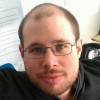
Michael Goerz, U.S. Army Research Laboratory
Title: Scalable Quantum Control with Semi-Automatic Differentiation
Numerical quantum control is the key to realizing the full potential of quantum technology. Scaling it to large quantum systems, especially open quantum systems, is a significant challenge and requires great care in implementing both time propagation and optimal control methods. At the same time, modern tools from machine learning such as automatic differentiation have greatly extended the flexibility of optimal control to functionals previously impossible to address. This includes new constraints on the control fields, and non-analytic functionals such as entanglement measures that are highly relevant to quantum computing and quantum metrology. However, out of the box, automatic differentiation comes with a large numerical overhead. I will present a new approach of "semi-automatic differentiation" that combines the state-of-the-art of numeric open-loop quantum control with automatic differentiation, thus allowing the benefits of automatic differentiation to scale to large quantum systems. Separating the time propagation from the evaluation of the optimization functional allows to apply an analytic chain rule in the gradient. The main part of the resulting numerical scheme is only a small variation of the existing GRAPE schemes. It can be implemented with great efficiency, and combined with automatic differentiation for the remaining part of the functional, at a profoundly reduced complexity. Thus, we can optimize any computable optimization functional at a numerical cost virtually identical to that of an existing efficient GRAPE implementation. We have realized the semi-automatic differentiation method in an open-source Julia framework, QuantumControl.jl for both GRAPE and Krotov's method. I will showcase the framework for the direct maximization of the gate concurrence of a two-qubit gate on two coupled transmon qubits and present benchmarks that compare the efficiency of the semi-automatic differentiation scheme with existing applications of automatic differentiation as well as traditional optimal control. Fundamentally, the approach of semi-automatic differentiation is agnostic to implementation details and may thus be freely combined, e.g., with GPU computing or other machine learning tools, as well as newer methods of optimal control that are geared towards experimental constraints on the control fields (GROUP/GOAT). Thus, the approach can significantly enhance the performance and flexibility of existing software packages for quantum control and enable them to scale to larger system sizes.
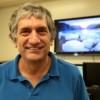
John Martinis, UCSB
Title: Scaling constraints for a quantum computer
I will outline some constraints on scaling a large-scale quantum computer. Most important is qubit error rates, which presently are not good enough for any qubit technology. I will also explain the fundamental need for excellent qubit control, and the size constraints this probably will place on the control system. This, in turn, places constraints on the qubit size and escape wiring.
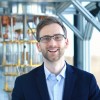
Zlatko Minev, IBM
Title: Quantum Hardware Design: Energy, Circuits, and Metal
The success of engineering complex quantum phenomena and large-scale quantum processors is rooted in our ability to rapidly and reliably design and analyze the underlying quantum devices. We introduce two new methods to this end and an open-source software platform for automated superconducting qubit layout, design, and analysis.
In this talk we overview use of the energy-participation ratio (EPR) of Josephson circuits (arXiv:2010.00620 & 1902.10355) and the modular quasi-lumped model for circuit quantum electrodynamics (cQED) (arXiv:2103.10344). These methods and others are implemented in our open-source framework Qiskit Metal, which we hope can help unify superconducting qubit design tools and simply the design and analysis. Metal aims to bring together experimentalists and theorists alike seeking to push the boundaries of quantum circuit theory and Hamiltonian analysis.
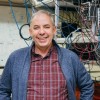
Mark Saffman, UW–Madison
Title: Scaling up atomic qubit arrays: opportunities and bottlenecks
Arrays of neutral atom qubits are one of the most promising approaches for scalable quantum information processing. Atomic qubits are identical, have excellent coherence properties, and are essentially cost free with no fabrication required. Realizing the full potential of programmable large scale atomic arrays requires solving some outstanding challenges including atom loss due to imperfect vacuum conditions, optical addressing with large space-bandwidth product, high power and low noise control lasers, and crosstalk-free measurements. I will discuss these challenges and point to fruitful directions for future progress.
- Chair: A. Barış Özgüler, Fermilab
- Jonathan Baker, University of Chicago
- Jens Koch, Northwestern University
- Matt Otten, HRL Laboratories
We expect everyone in our community to follow these guidelines when interacting with others both inside and outside of our community. Our goal is to keep ours a positive, inclusive, successful, and growing community.
Registration is required to attend the CQE Workshop on Scalable Quantum Control. This workshop is intended for those who are in or have completed a graduate program.
Click the link below to reserve your spot:
Space is limited, registration may be capped based on availability.